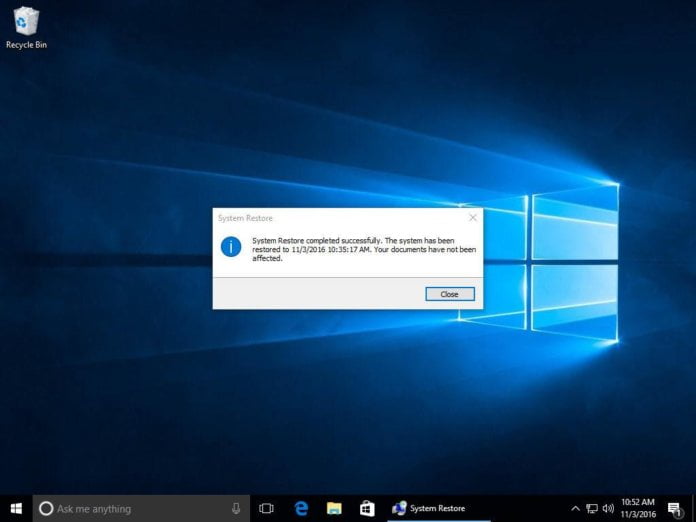Windows 10 has been hailed by many as a considerable improvement over the previous technology, marrying the satisfactory capabilities of ‘traditional’ Windows with the excellent bits of Windows eight.
However, no software program is exempt from glitches, bugs, and diverse compatibility issues – least of all Windows 10. While it’s now not as Trojan horse-riddled as previous Windows versions, there are nevertheless a series of not-unusual problems that have been constantly identified via users. Here’s a list of several Windows 10’s reoccurring troubles – as well as information about how to fix them.
See associated
Best Windows 10 tips and hints
How to hurry up Windows 10
How to get assistance in Windows 10
1 – Can’t upgrade from Windows 7 or Windows 8
We ought to write a book about the problems humans document with the improvement to Windows 10. The Get Windows 10 (or GWX) app reports that completely viable computer systems aren’t like-minded, via the app in no way appearing in the first place and to stalled and failed downloads. If you have got a PC nevertheless stubbornly clinging to Windows 7 or Windows 8, there are some matters to attempt:
Open the Control Panel, run Windows Update, and ensure the PC is completely updated. If updates fail, run the Windows Update Troubleshooter (see below, number 3)
Use the Media Creation Tool. Don’t rely upon GWX: visit https://www.Microsoft.Com/en-us/software program-download/windows10, click Download tool now, keep the device, and run it on the PC you want to improve. If this failed to be just right for your lower back when Windows 10 launched, attempt it once more now – the device has progressed.
Make sure that hardware Disable Execution Prevention (DEP) is switched on inside the BIOS, regarding your motherboard manual, for help if you want it. Then, if you continue to have issues, use the Start Menu to search for ‘overall performance,’ Adjust the advent and performance of Windows, click the Data Execution Prevention tab, turn DEP on for all applications and services, and then reboot and attempt again.
2 – Can’t upgrade to today’s Windows 10 model
Windows 10 was given a huge replacement (the Windows 10 Fall update) in November, but many computers have failed to deploy it mechanically. From the Start Menu, click ‘Winter’ and hit Enter. Today’s build number is 10586.XX: in case you’re nevertheless on 10240, you have missed out.

You can attempt troubleshooting Windows Update (see below), but in our experience, it is high-quality to use the Media Creation Tool. Download it and use it to improve the PC. Note that you will see a ‘Ready to put in’ display that, worryingly, does not mention something approximately an update: this is correct; test that the installer is ready to put in the precise Windows 10 version (Home or Pro) and that it is set to keep personal document and apps, then click on Install – your statistics, apps and (nearly) all of your settings will continue to be untouched.
3 – Have loads with much less loose storage than before
However, you won’t understand that after installing Windows 10, the vintage version of the OS is putting around in the heritage, taking over useful space. Surprised? When you upgrade, your antique version of Windows doesn’t disappear. Nevertheless, it goes through the name “Windows. Antique” and takes up precious disk area in the machine’s return.
You can ask why this occurred, and the answer is that Microsoft is not quite as controlling as a few different huge tech agencies. Instead of forcing customers to replace their hardware and by no means look returned, Microsoft maintains the crucial documents that made up your preceding OS within the C:/ drive. So, if you do not like the new Windows 10 and decide to exchange it again to the prior running system, you might be better used to it.
If you want the brand new OS and want to delete the antique one for appropriate, click the Windows Start button and kind “clean up” to seek the machine robotically. A “Disk Cleanup” app needs to appear before you within the seek standards discipline. Click on it to open the software. A pressure choice box should seem. Select the drive your OS is established on. Next, the default drive needs to be seen. First, that’s commonly the C:/ force. If you’re confident that this is the primary force and your OS is set up, hit OK. Windows must test your gadget for a while, and a box will pop up.
Now, things should take place at this point. You can be presented with a list of documents to delete right away, one in all, which is “Previous Windows Installation(s),” or if that alternative isn’t always visible, you will want to select the “Clean up gadget documents” option on the lowest left.
Windows will do a little greater calculations and provide you with another similar searching box, with the option to delete ‘the preceding Windows installation(s). Again, you may scroll down to discover it. However, it must be taking on a giant little bit of drive space, in our case, nearly 5GB. Tick this option and click OK. In the separate message container that appears asking if you’re positive you need to send this, click Delete Files, and you’re completed.
4 – Windows Update isn’t running
Many people have reported issues with Windows Update in Windows 10. Check first which you’ve upgraded to the Windows 10 Fall replacement (see above, wide variety 2). Then, if you’re still getting issues, download and run the Windows Update Troubleshooter, reboot, and try to update again.




